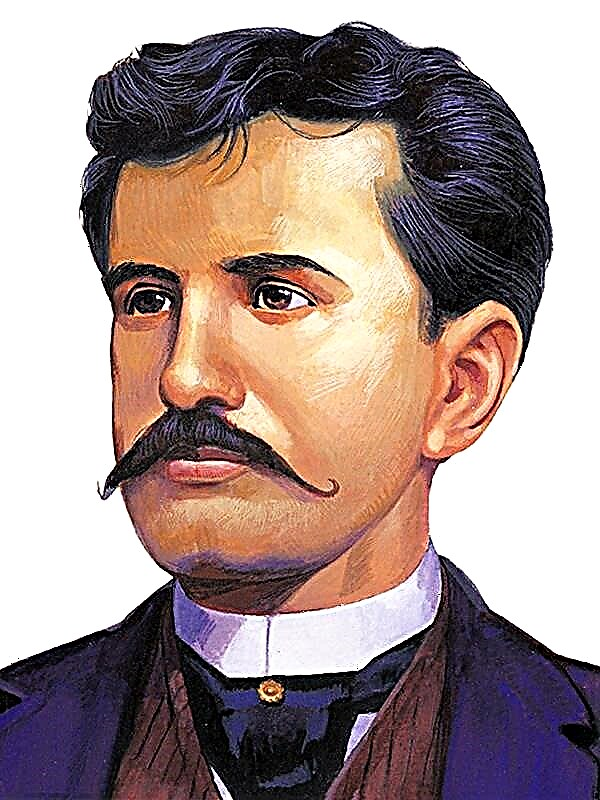We often hear “Go for a dream!” and "Do what you like." Because of these slogans, it is impossible to see the path to full and fruitful work. These erroneous statements make it difficult to build a career and receive satisfaction from the profession. The scientist and author of several best-selling books on personal growth and motivation, Cal Newport, believes that the best way to success is to learn the business that you are already doing. The advice outlined in his book “Stop Dreaming, Get Things Done!” Will help you give up your quest for true calling and non-existent ideal work in favor of a successful and happy working life.
Rule One: Learn from Masters, Not Dreamers
Most people are dreamers. According to the theory of dreams, in order for a working life to work out happily, the main thing is to understand why you are passionately attracted, and then find a job that will satisfy this passion. But following a dream is dangerous. If you enter into a working life guided by the approach of a dreamer, boring responsibilities and corporate bureaucracy can cause such annoyance that work will instantly disgust you. You will constantly feel miserable and lost.
If you want to love your job, you should not chase a dream, because people who love their work are not those whose dreams come true, but those who have worked on it long enough to learn how to perform their duties well.
Imagine that you have been working in your place for many years - that means you had time to master the profession perfectly and enjoy the understanding that you can do a lot. In addition, you probably have established good relations with colleagues, and you began to understand that people need your work. All this clearly contradicts the theory of dreams, which leads people to believe in the existence of ideal work. They are looking for her, but, alas, they never find her, they begin to move from one place of work to another and torment themselves with doubts.
Brilliant careers are not made right away, and this is the best proof of the fallacy of the idea that just following a dream is enough
The master’s approach should serve as a guideline in finding your professional destiny: you should think not about what the world can give you, but about what you can offer him. The essence of this approach is to focus on creating a high quality product and the desire to become an indispensable employee.
Think about what you can give to your employer. Let it be your rare and valuable professional skills, in other words - career capital. Aim at creating a high-quality product and try to become an employee who cannot be overlooked - this is the best strategy for accumulating and investing career capital. Remember that high calling cannot be realized without becoming a master of their craft.
Rule Two: Use Thoughtful Preparation
To accumulate career capital and move from wage labor to independent work, you will need some time. It is generally accepted that the necessary minimum - the "magic number of the master" - is 10 thousand hours. This is the time that makes preparation considered. You fully concentrate on the task and work at the limit of your capabilities. This activity is difficult and not too pleasant.
If you’re too comfortable, then you don’t move forward
It’s not enough just to give up comfort. One must also learn to objectively evaluate results and accept criticism.
Using thoughtful training for professional growth, you will be able to overtake colleagues and accumulate impressive career capital, which you will exchange for independence in the future - one of the qualities that makes work attractive and very much appreciated. The boundaries of freedom will expand as your professionalism grows.
Rule Three: Exchange Career Capital for a Mission
To realize your high calling, it is not enough to accumulate career capital. It is also important to make the project visible - the law of exclusivity states this. This means that you need to launch and promote your product so that people learn about it and want to discuss it. In other words, a marketing approach should be used in the implementation of the project. Only in this way can a noble idea be made the foundation of a brilliant career.
At the same time, there is no need to immediately build ambitious plans: at first you can carry out modest projects that will help you determine the boundaries of your interests and understand the prospects of your own ideas. If you don’t know where to look for ideas, pay attention to related areas: quite often at the junction of sciences new hidden opportunities appear.
Take on the work, the result of which can be evaluated in no more than a month. Then ask your colleagues to evaluate the outcome and make critical comments. Their opinion will help you understand whether you should continue to work on the project and in which direction. As a result, the implementation of small tasks will let you understand what your exceptional project will look like and indicate the shortest path to success.
So gradually you will come to understand that the mission gives meaning to the work around which you can build your whole working life. The significance of the mission lies in the fact that it directs energy in a useful direction, changes the whole person’s life, including attitude to work. To people who know that their work is needed, work brings tremendous satisfaction. In addition, to those who have a mission, no work seems too hard: it does not take away strength, but gives them. It happens that the mission not only gives meaning to the work, but also helps to answer the question of why you live.
To find a mission, you, as in the case of gaining freedom, need to accumulate career capital. Its presence is a necessary condition for the success of the mission. To do this, you should be at the forefront in your field, constantly monitor what is happening in it. Every week you need to learn something new in your field of activity: read an article, listen to an expert’s presentation, talk with someone from more experienced colleagues. Record all new information from memory or ponder during a walk.
Rule Four: Avoid the Traps of Independence
Independence is just as important as the salary and reputation of an organization. Once you appreciate the importance of freedom of action, you can no longer ignore it when choosing a job.
Scroll through your head the list of the best, in your opinion, works, and you will see that independence is most often based on independence
However, achieving independence is not easy. She has some traps. Those who want to expand the boundaries of freedom, for which there is not enough career capital, risk getting into the first of them. These people mistakenly believe that in order to gain professional freedom, it is enough to have the courage. But in reality, bare enthusiasm is not something rare and valuable, it can not be considered career capital.
In fact, in order to gain professional freedom, you need to find a reliable source of income that will enable you to lead a non-standard lifestyle - you decide what and when to do. It is impossible to obtain without a career capital.
If you gain independence without a career capital, it is likely that you will become completely independent, but penniless
Now imagine that you have a career capital sufficient to gain independence. You have become a valuable worker, and the employer, not wanting to lose you, begins to impede your attempts to change your life. This is another trap of independence: freedom is important to you, but not to the company. Faced with resistance, you will realize how difficult it is to invest career capital in your future freedom. The employer will in every way convince you to give up independence in exchange for money and prestige. It’s hard to resist this pressure.
To avoid both traps, follow the law of financial stability: use money as an objective measure of value. When deciding whether to take on an attractive job that will give more independence, make sure that they will pay for it. If not, continue your search. Money will help you understand if you have enough career capital to become independent, whether you are on the right track to freedom. It is better to refuse an idea if no one wants to pay for it, and it makes no difference to everyone how you manage your working life.
You have to fight for independence because the employer is by no means interested in giving it to a valuable employee who has accumulated career capital
Having the opportunity to independently decide what and how to do, you will feel happier, begin to become more interested in your work and get more satisfaction from its results.
The most important thing
A few simple rules can help you find your favorite business and build a successful career. First of all, you need to understand that there is no ideal job, and it’s better not to waste time looking for it, but try to make the activity that you already have fun. Over time, you will develop your skills and they will allow you to become a professional who cannot be overlooked. You will understand what attracts you to work and realize that your valuable and rare abilities are career capital, in exchange for which you can gain independence. You will have the opportunity to live wherever you want, choose projects that you think are interesting, independently manage your time and not depend on anyone.












